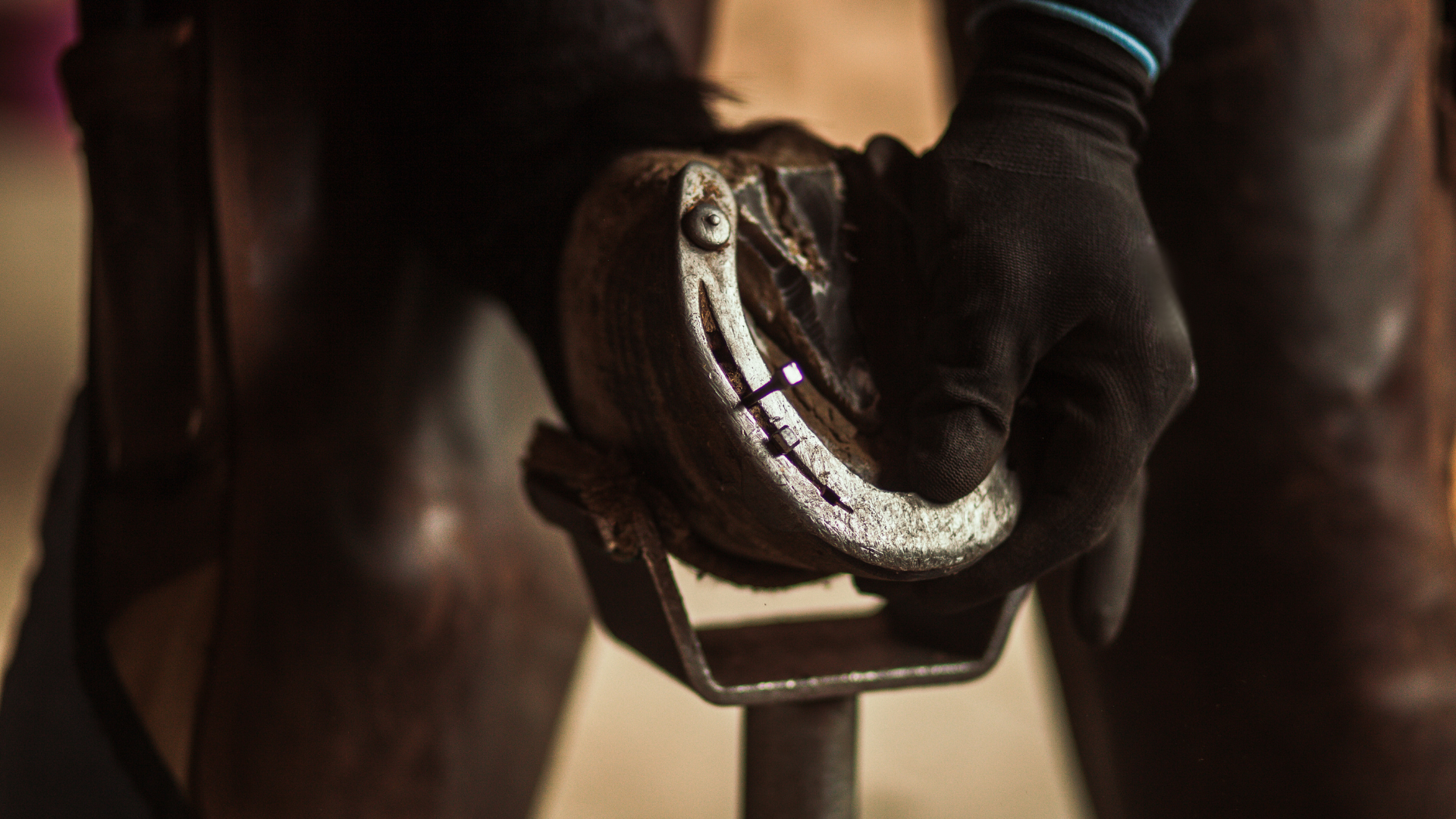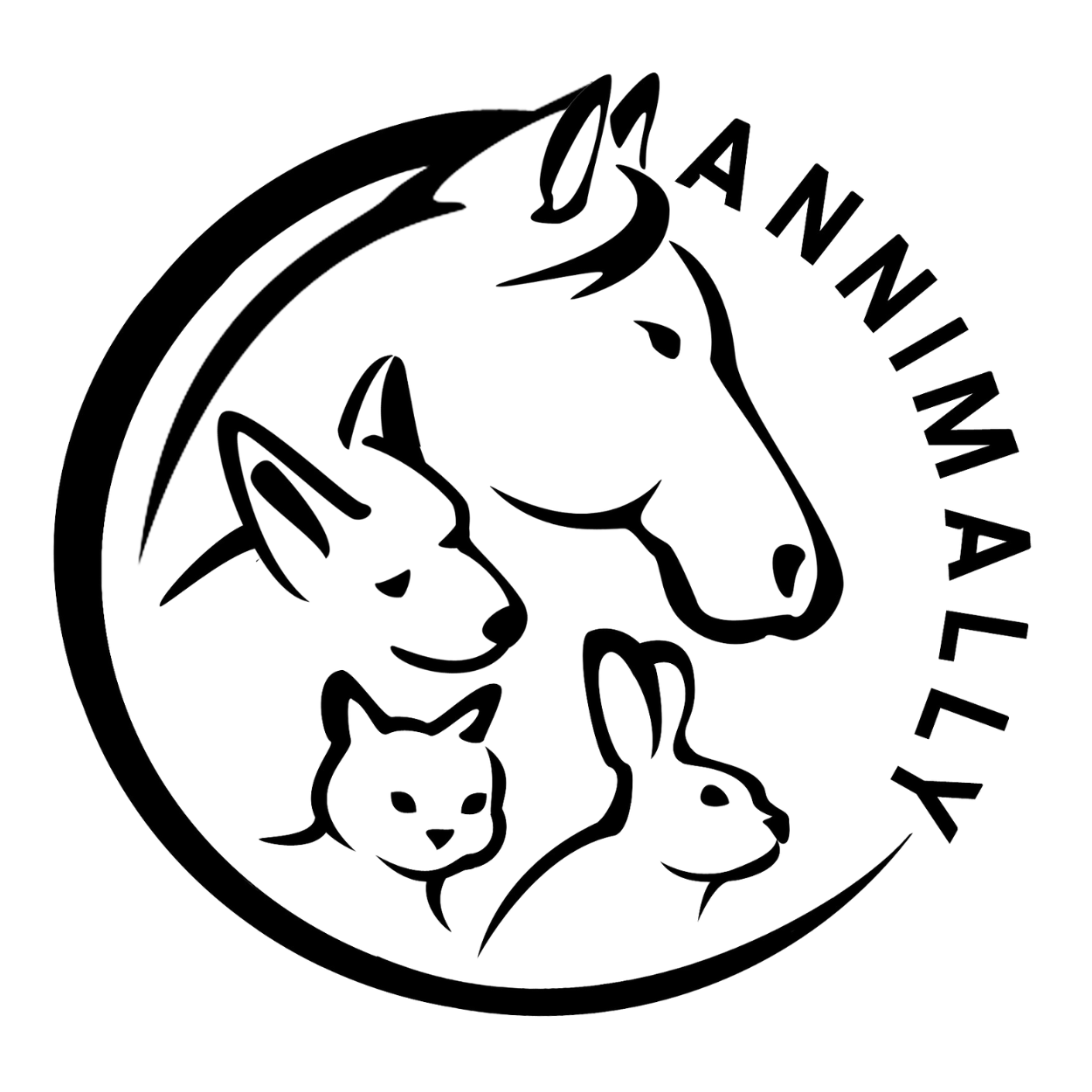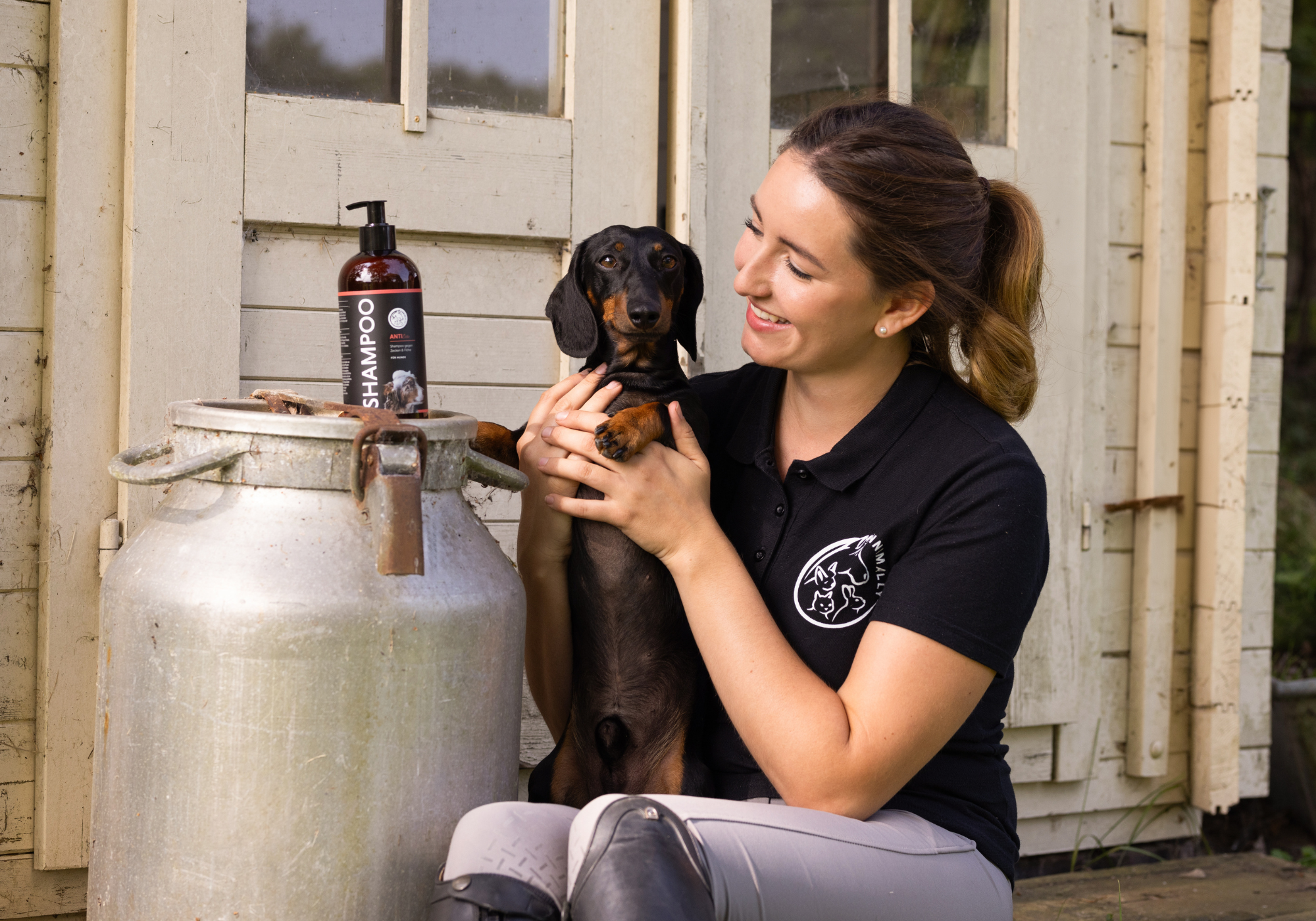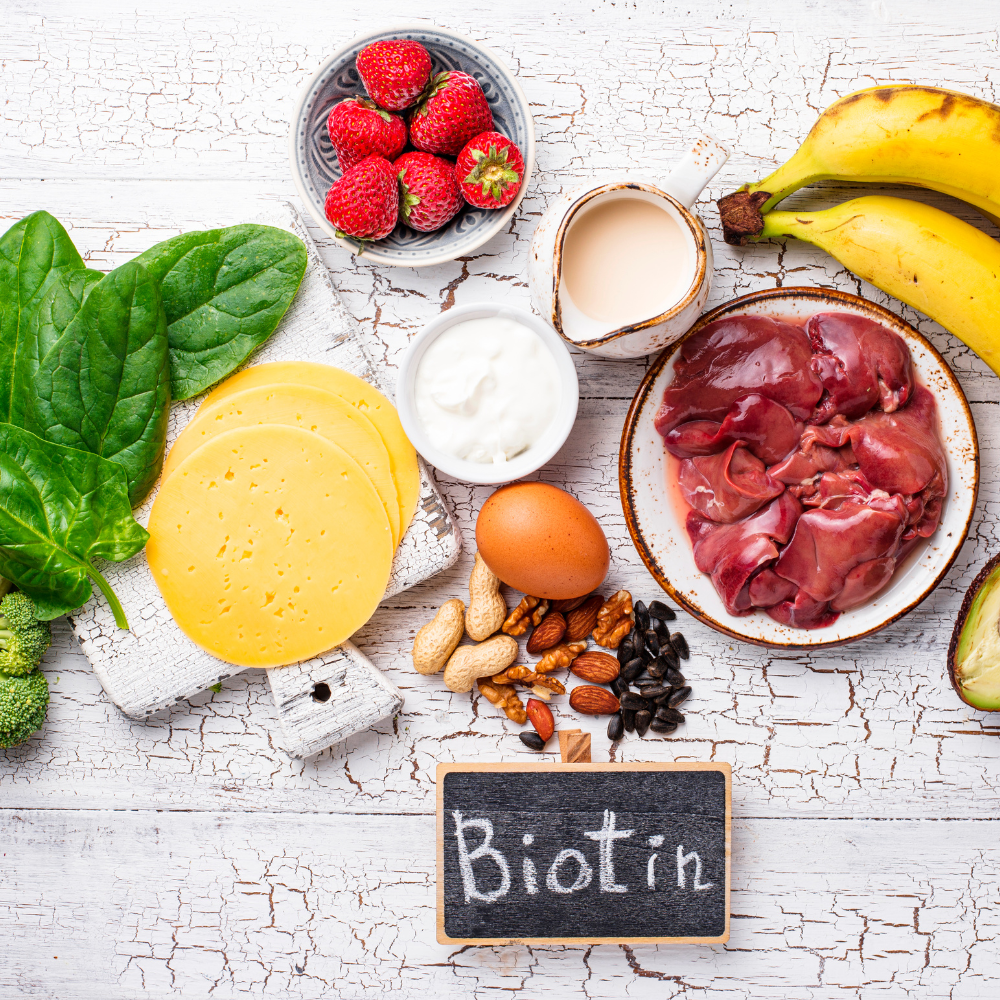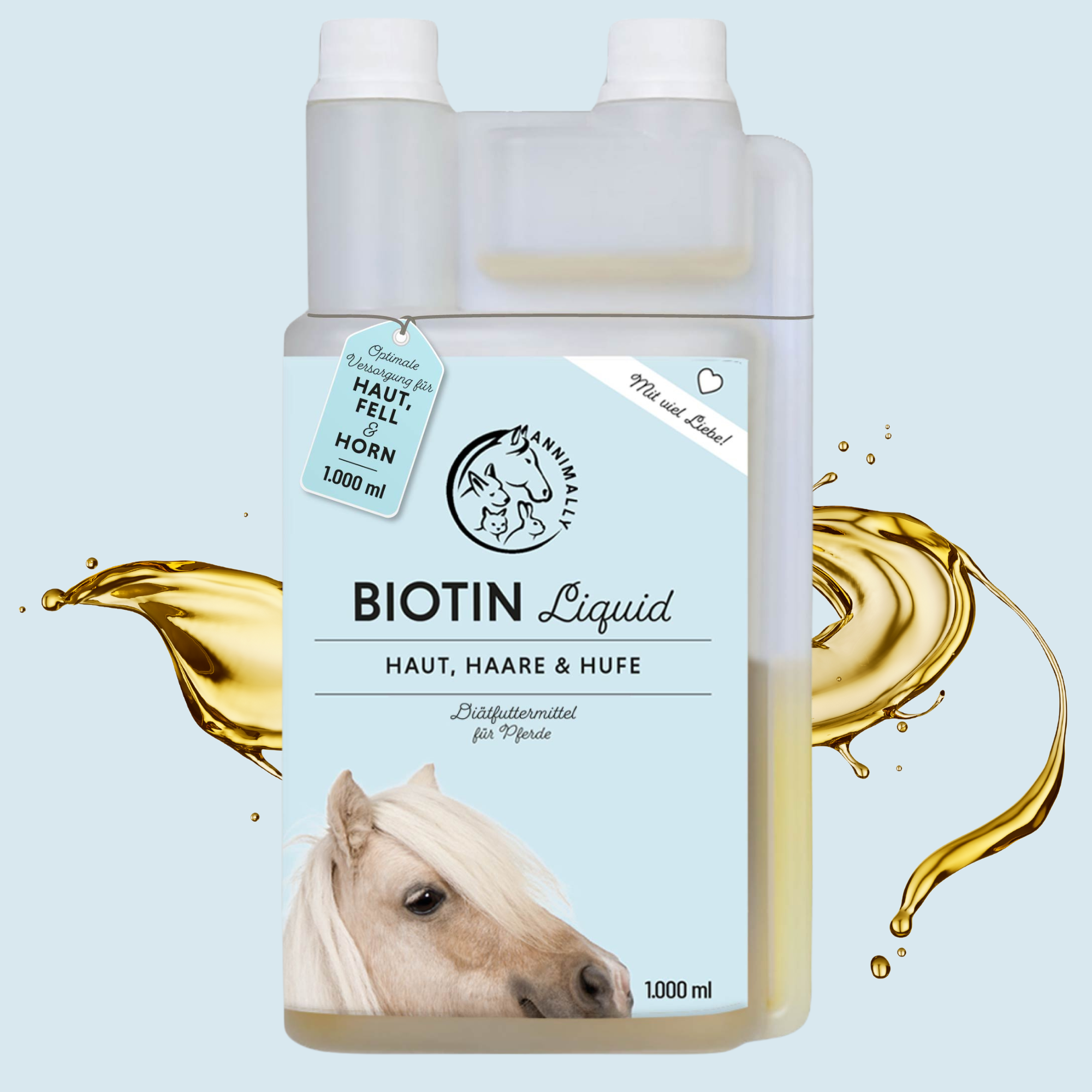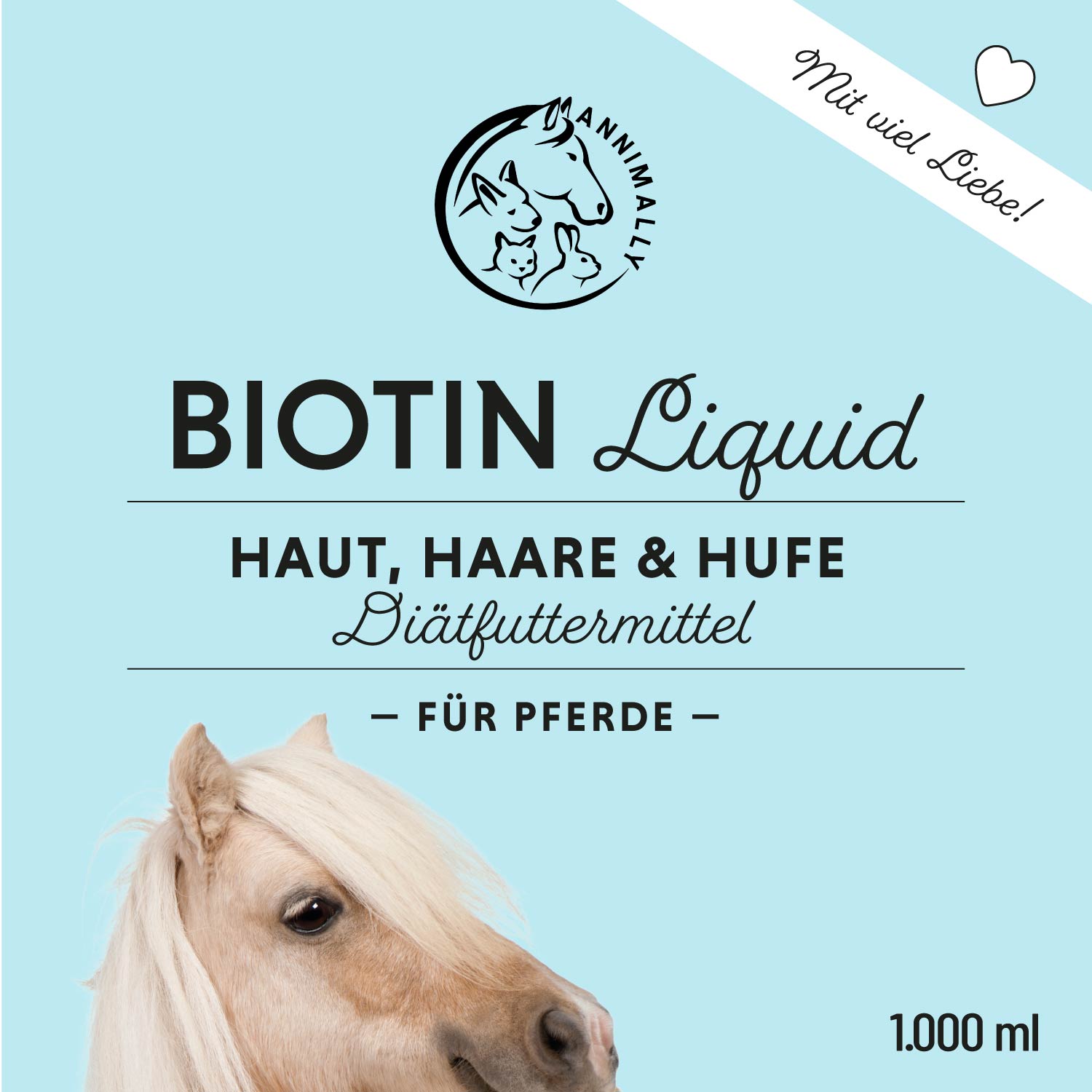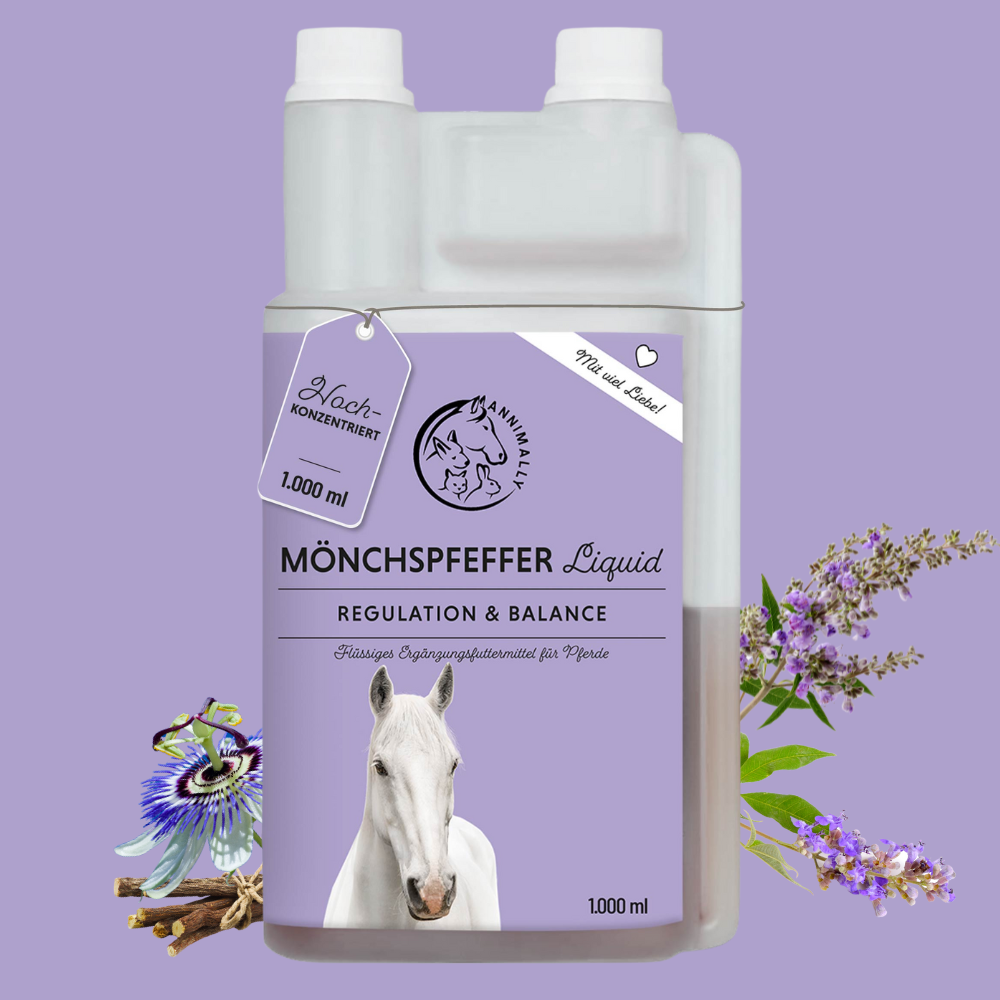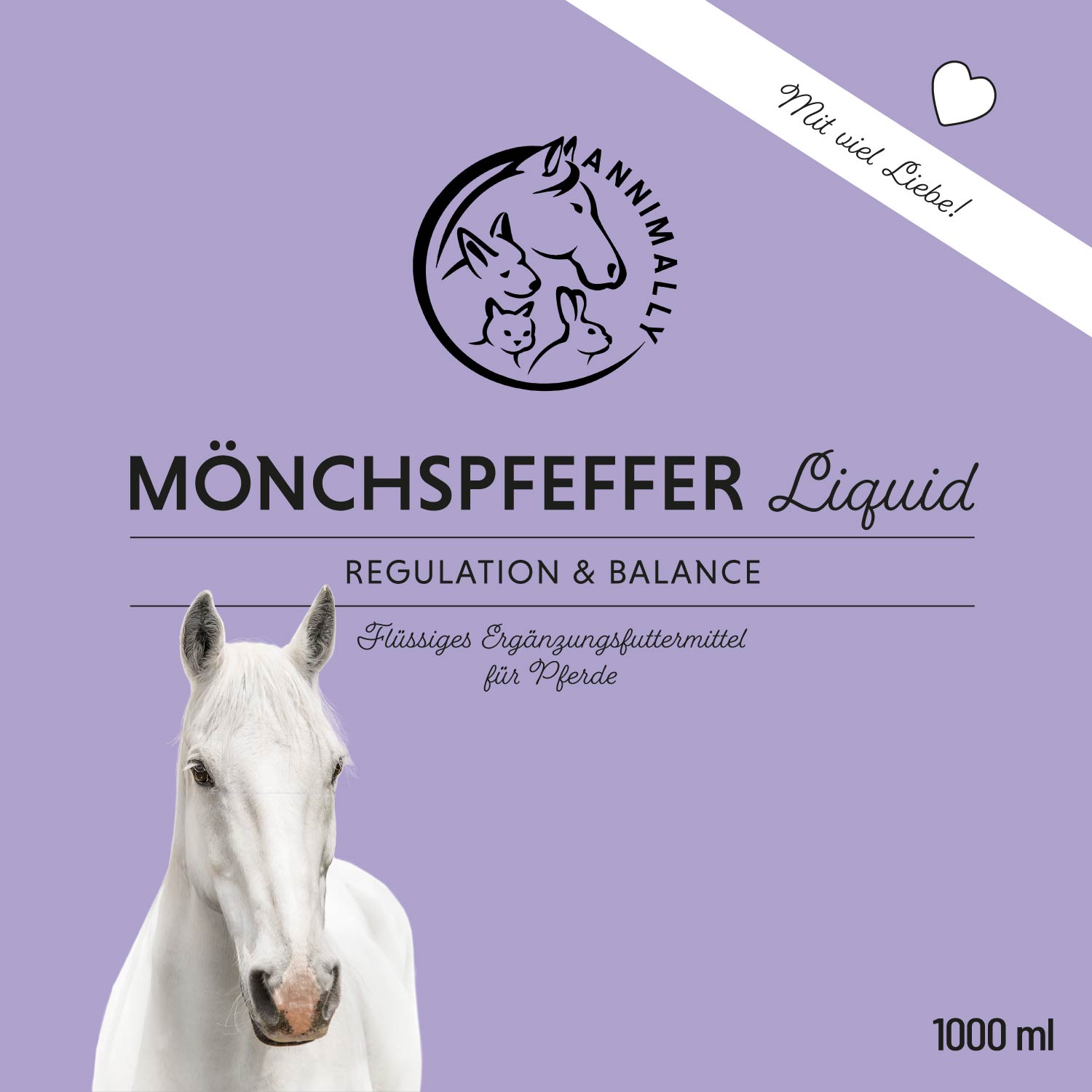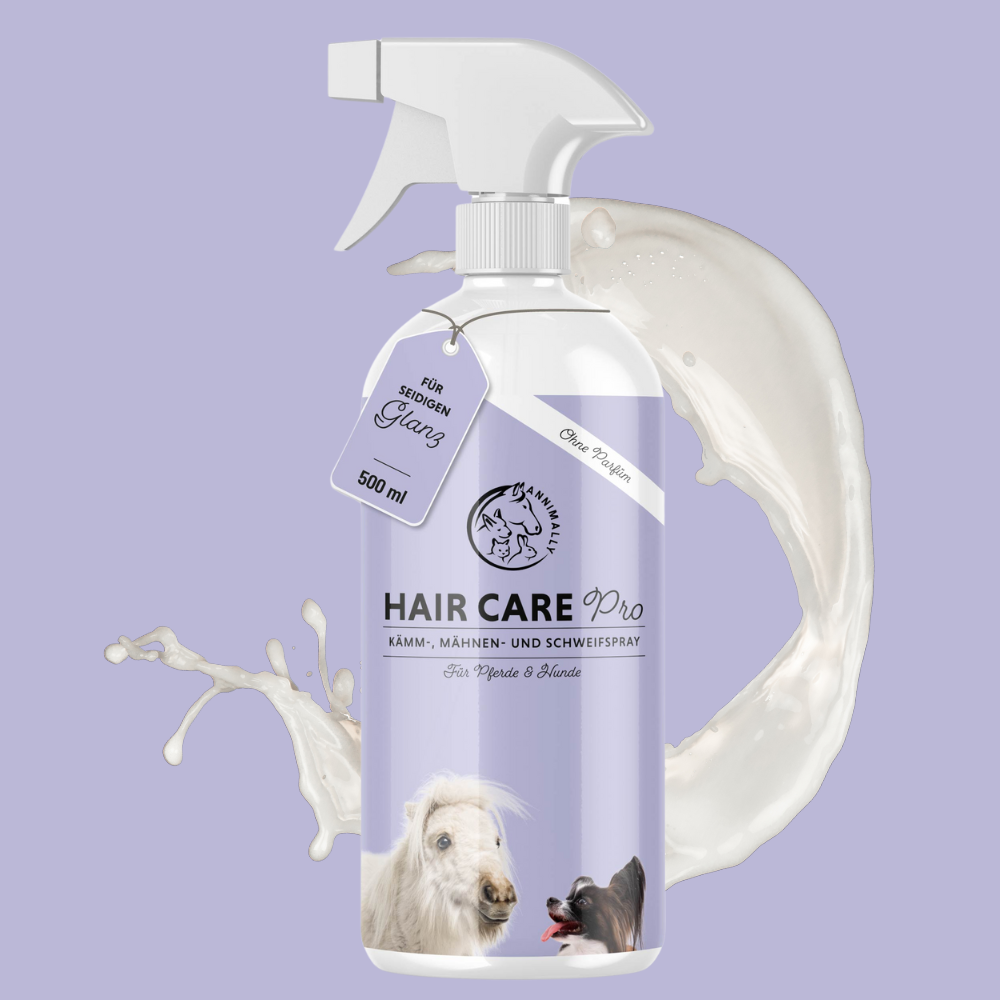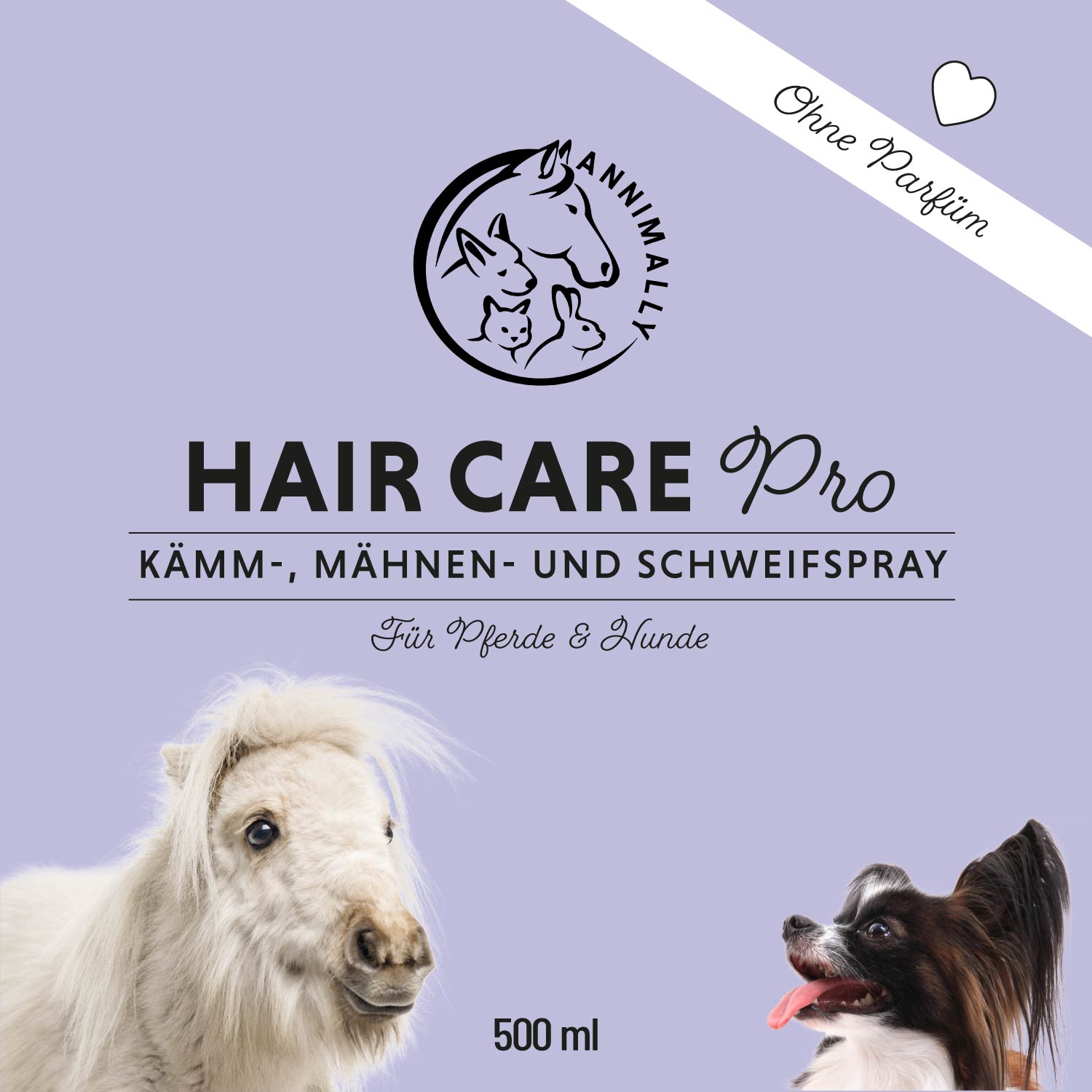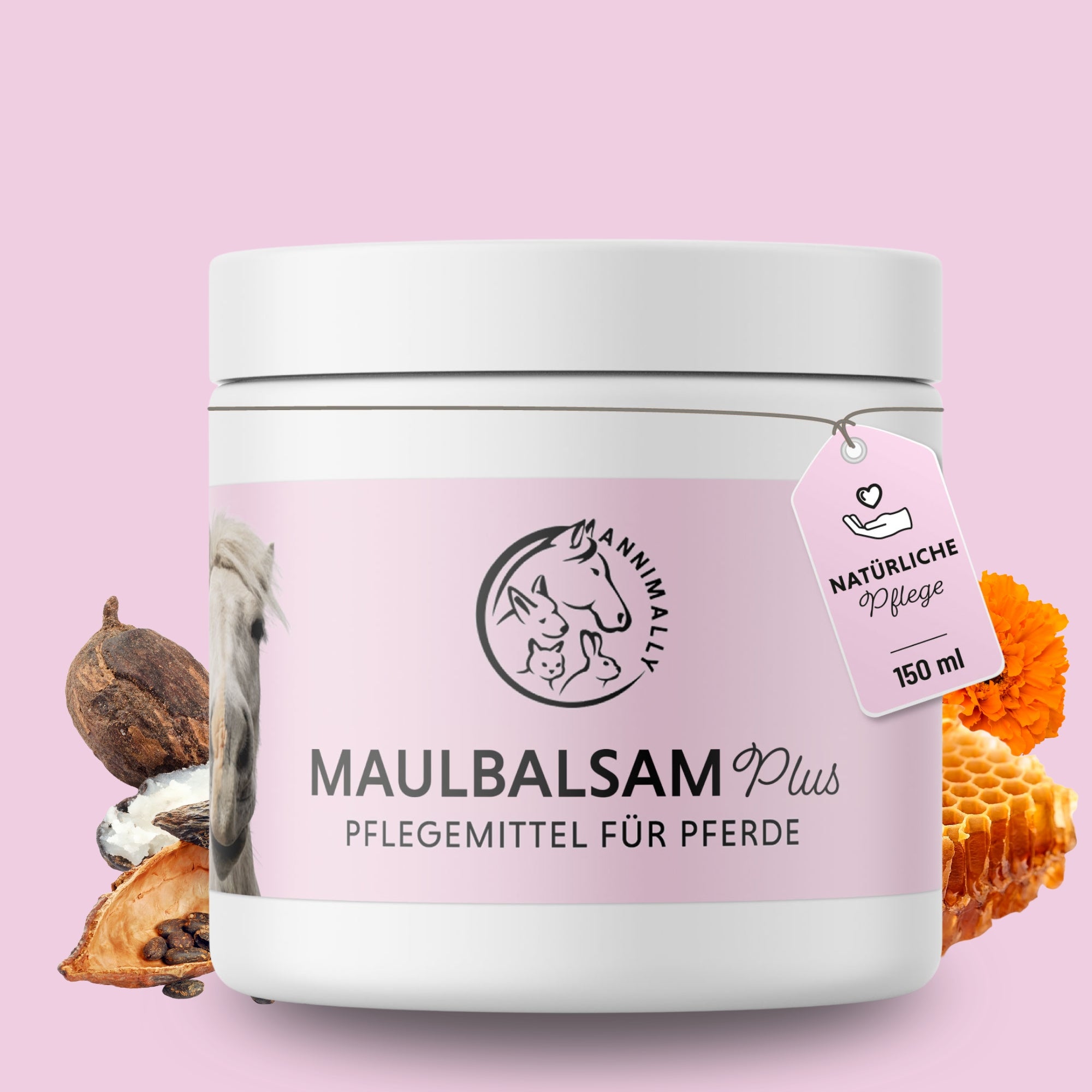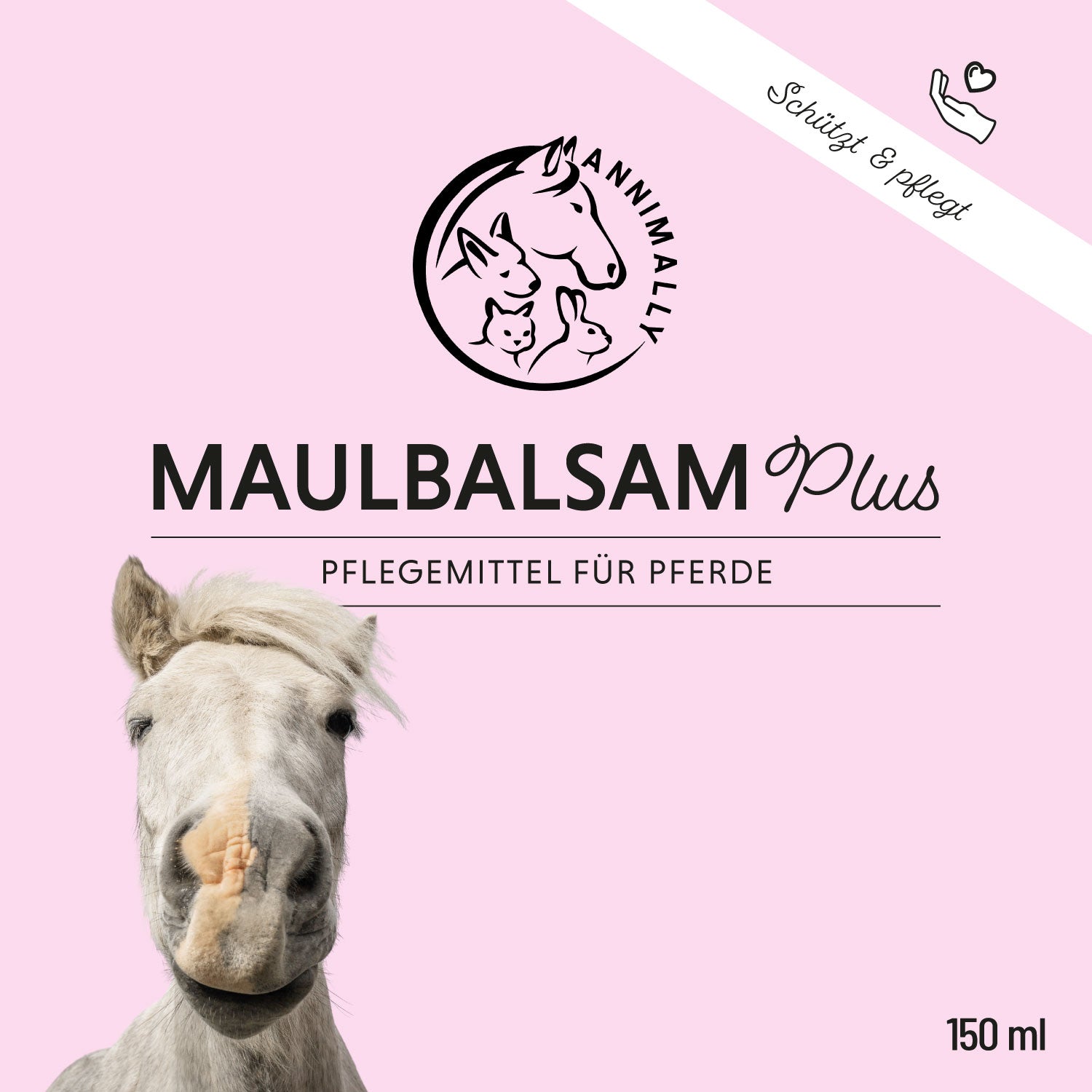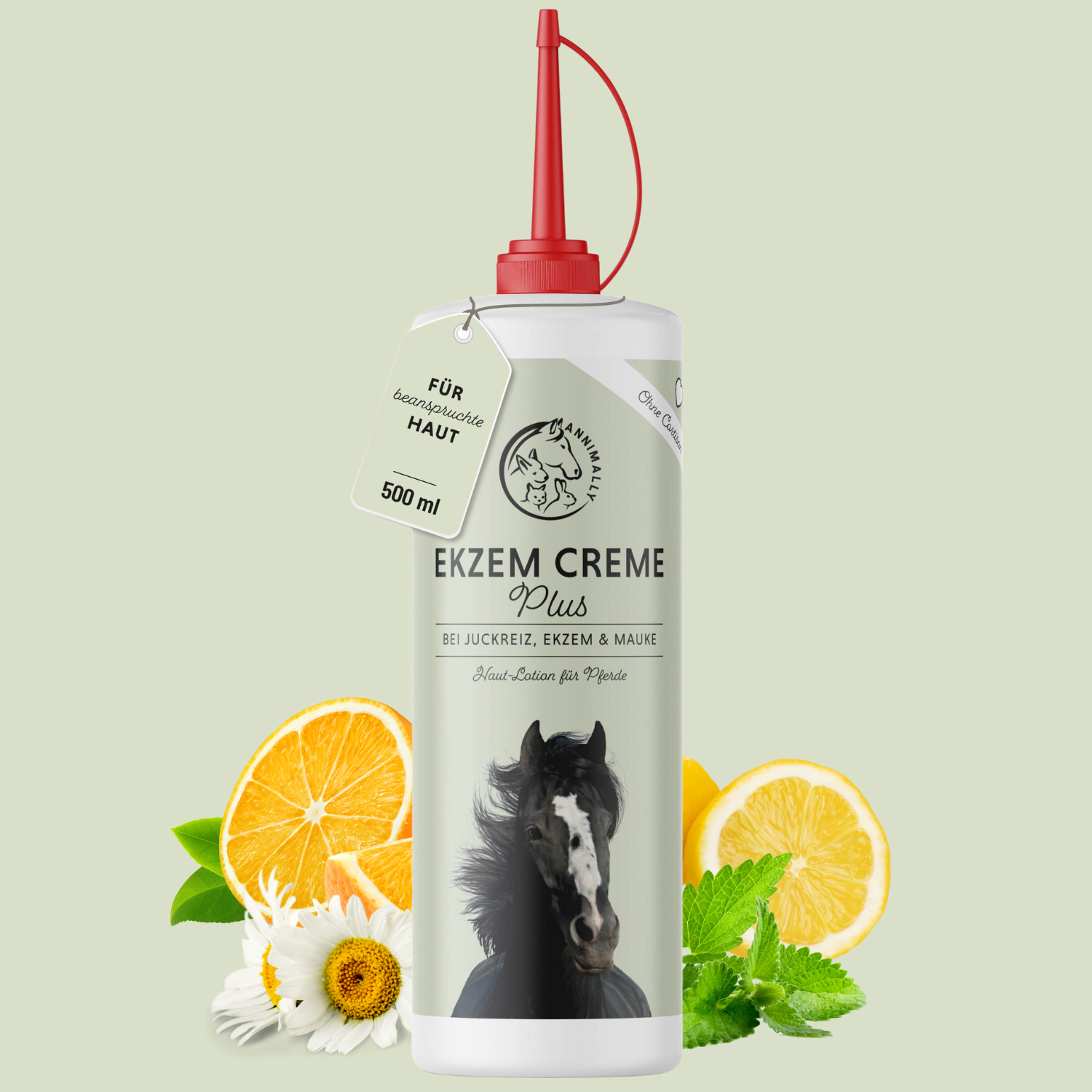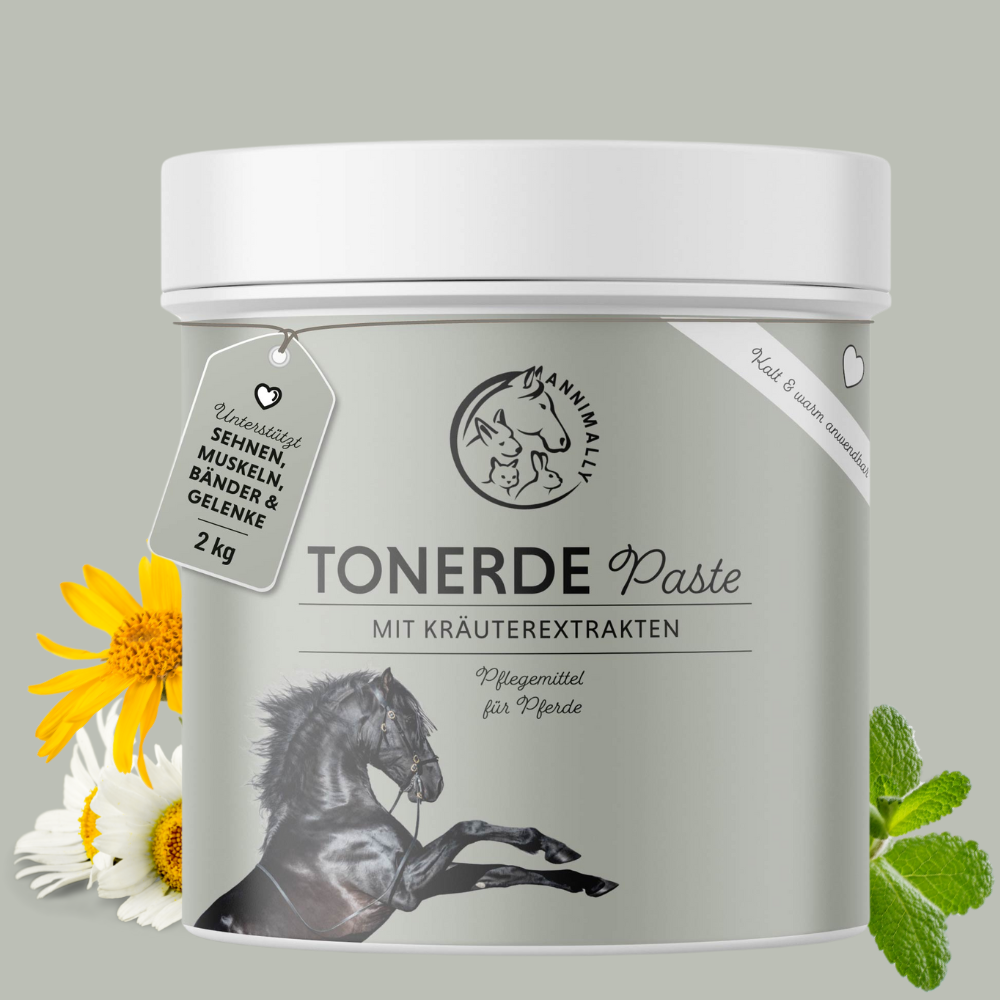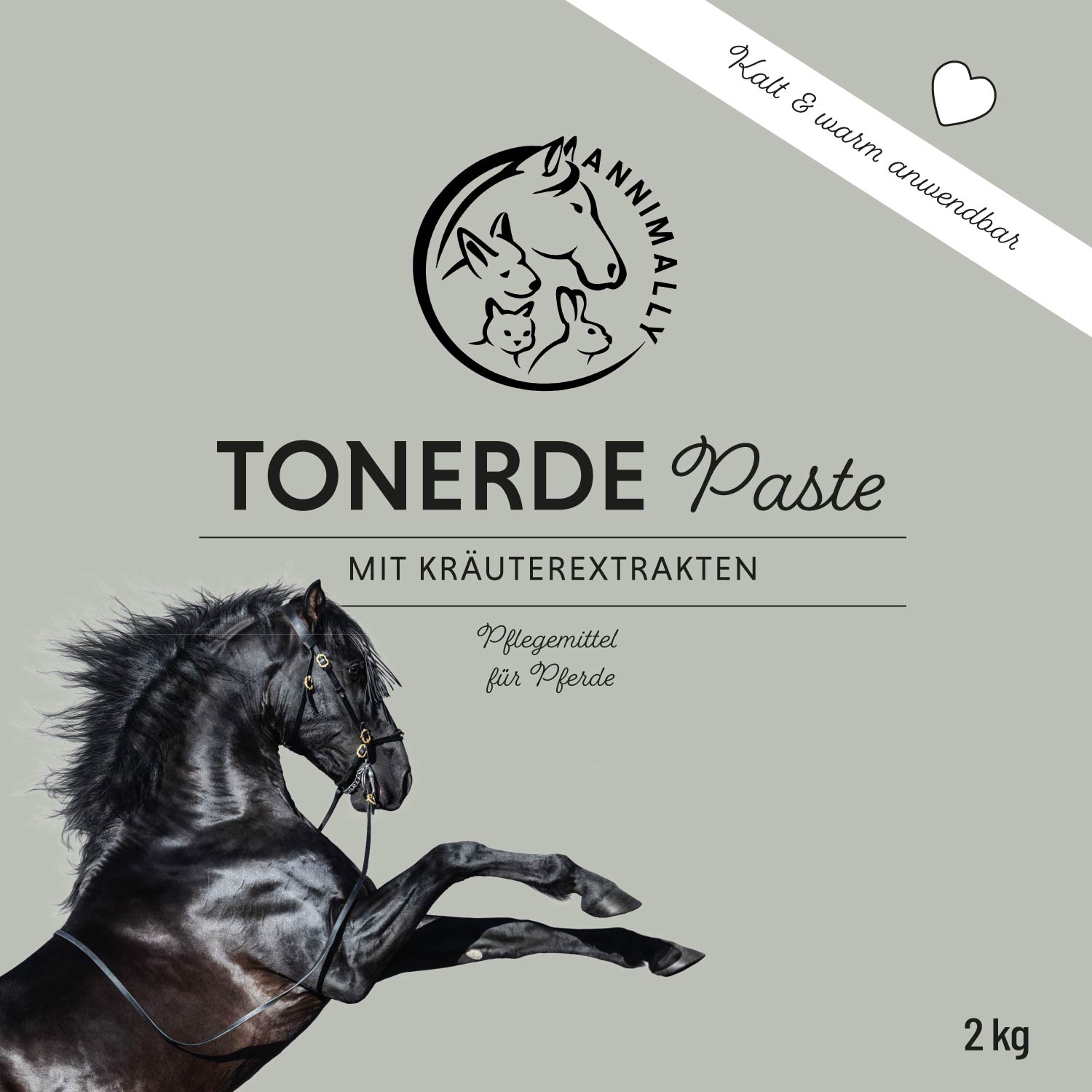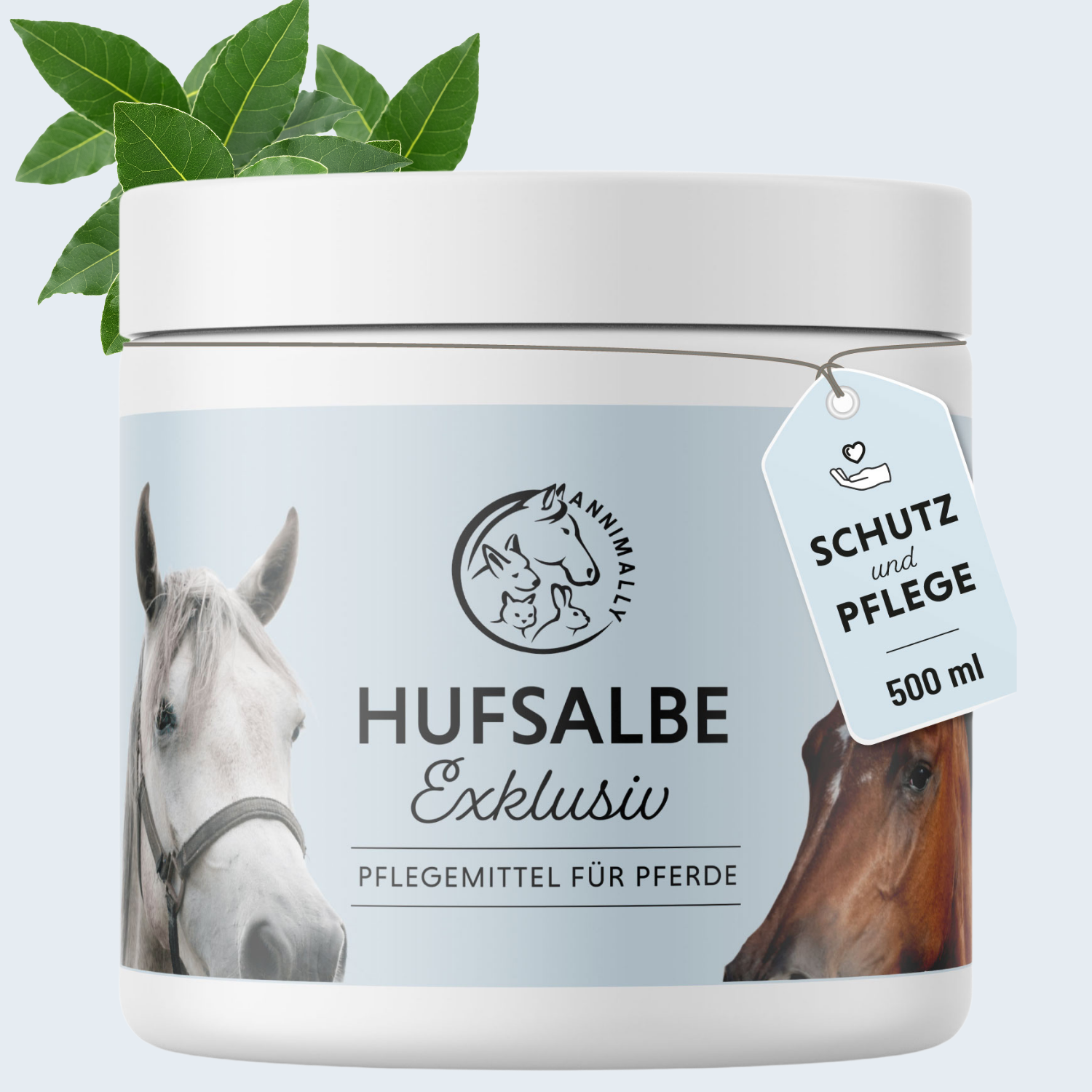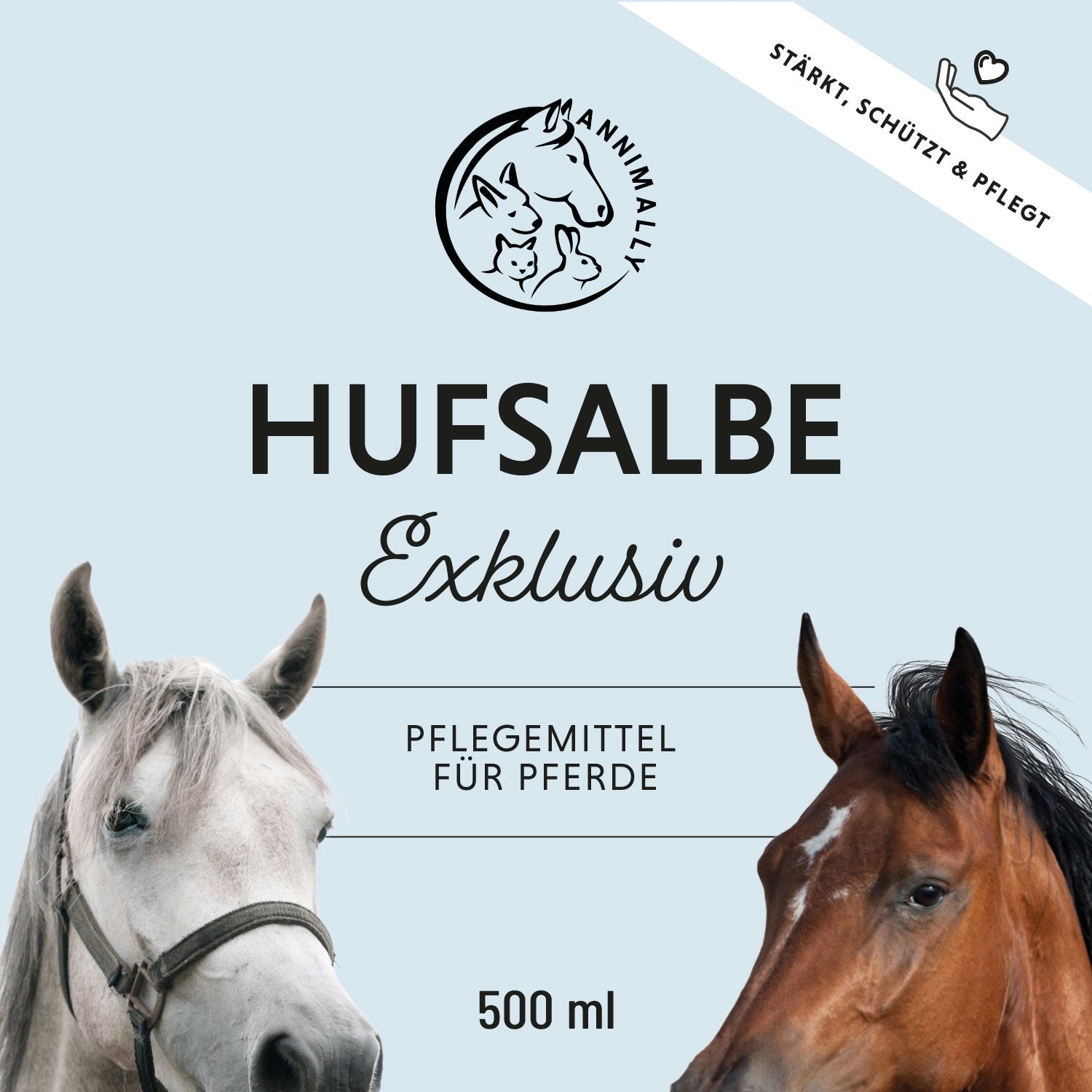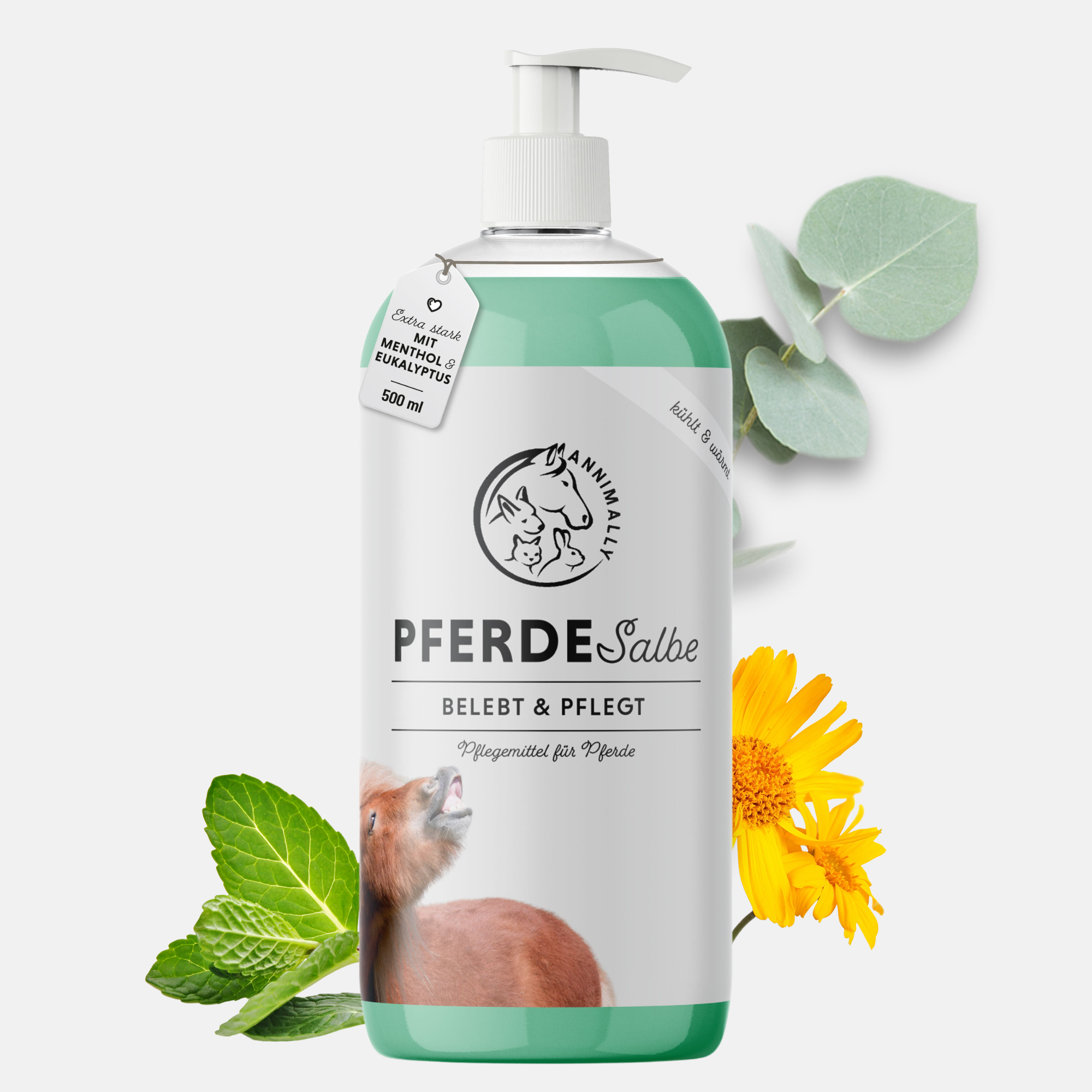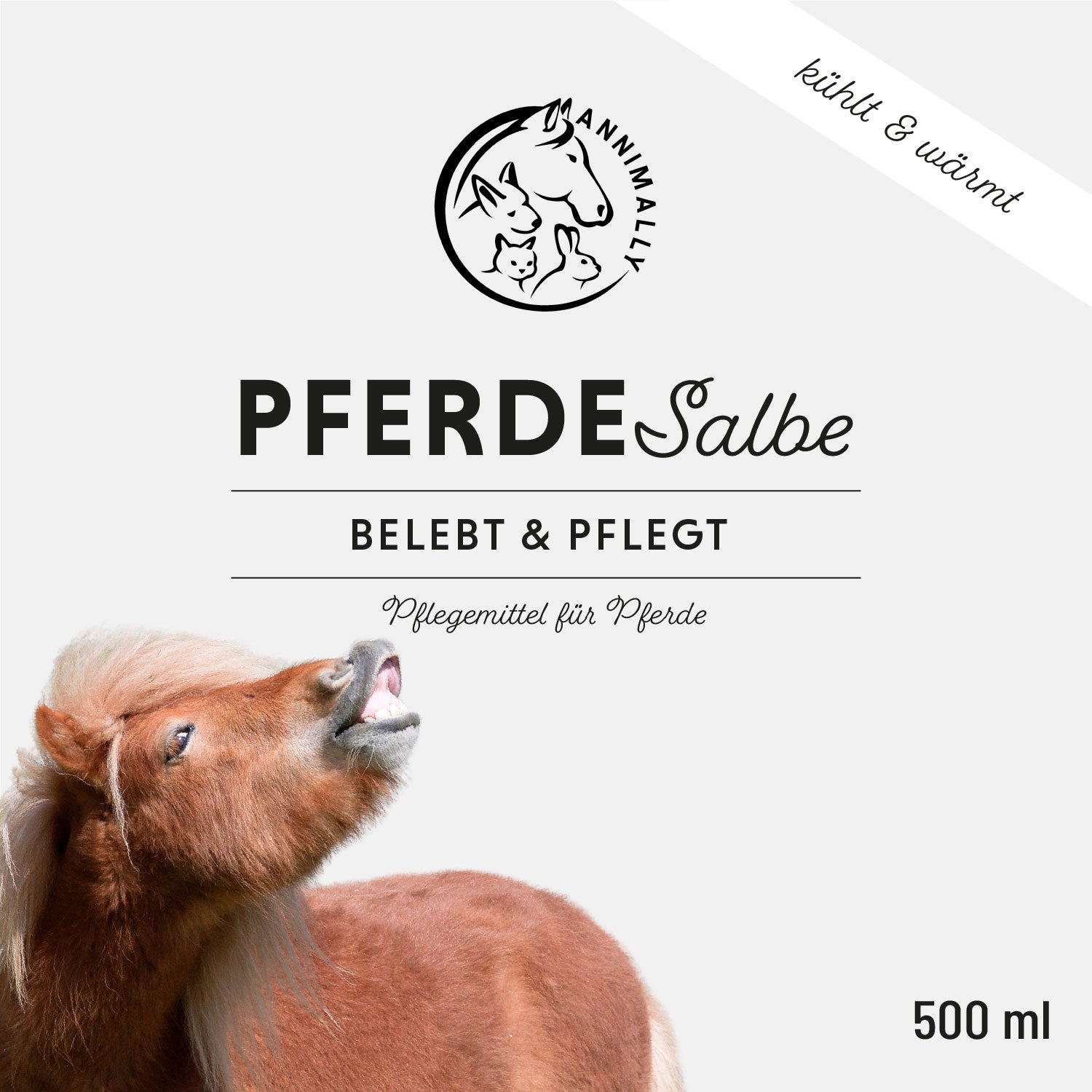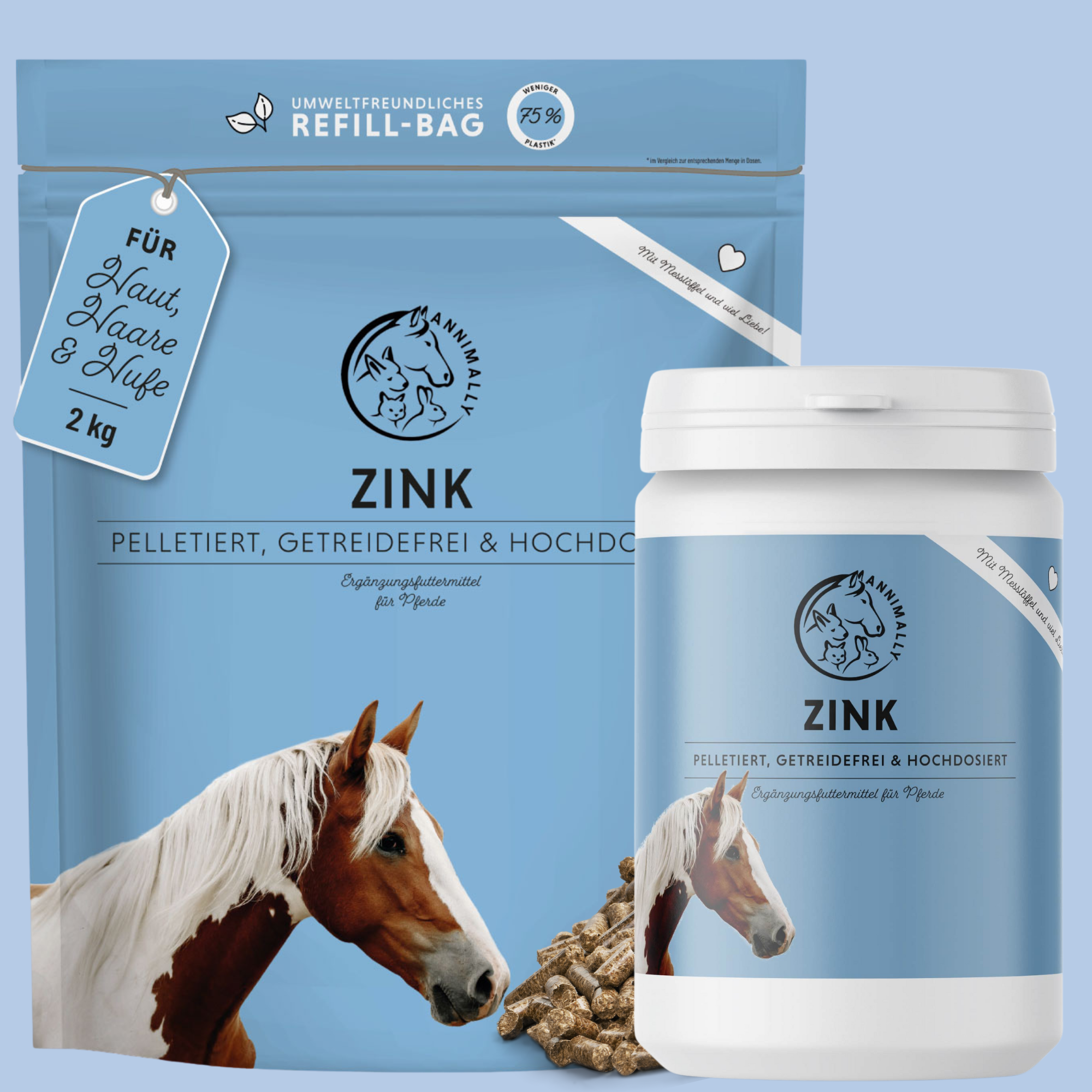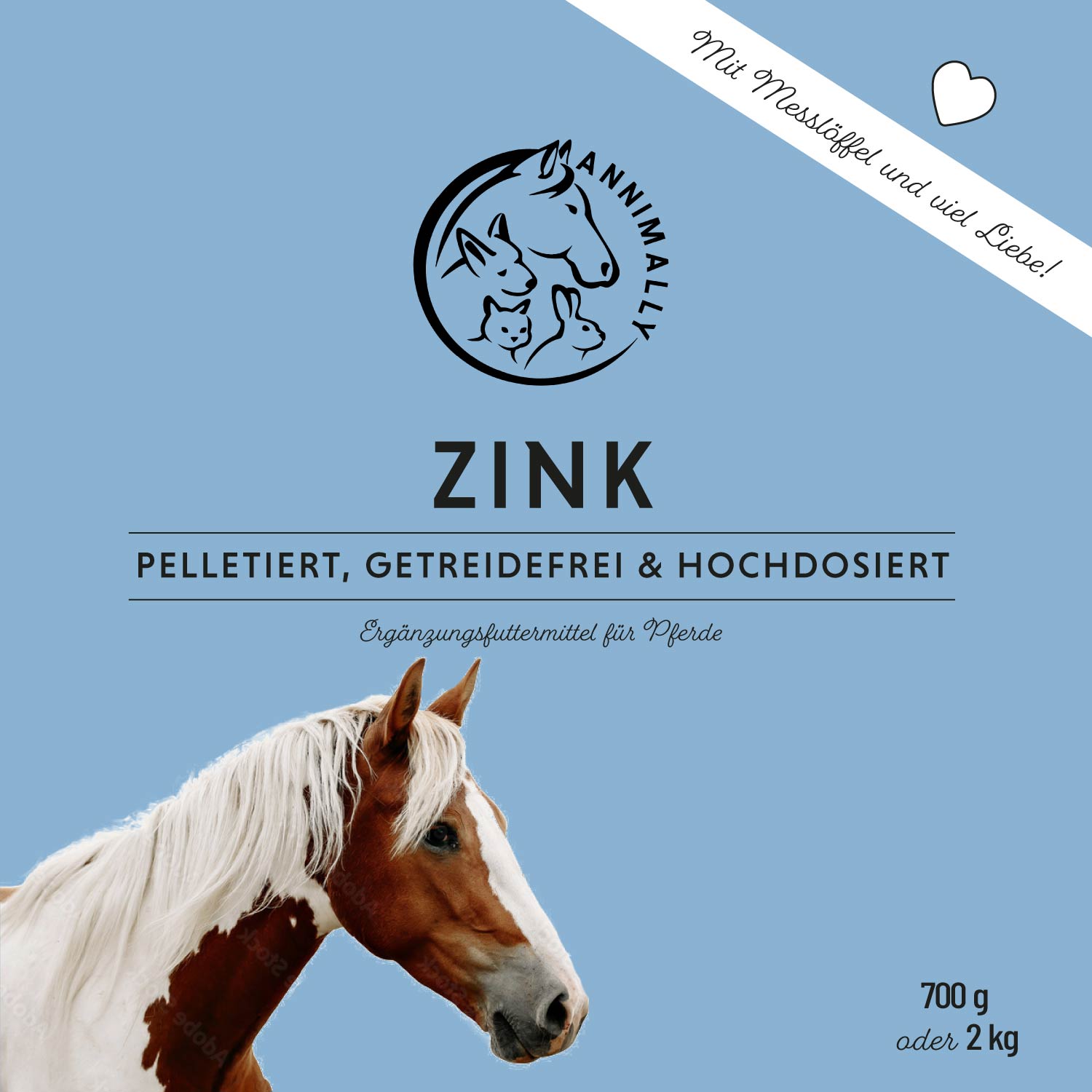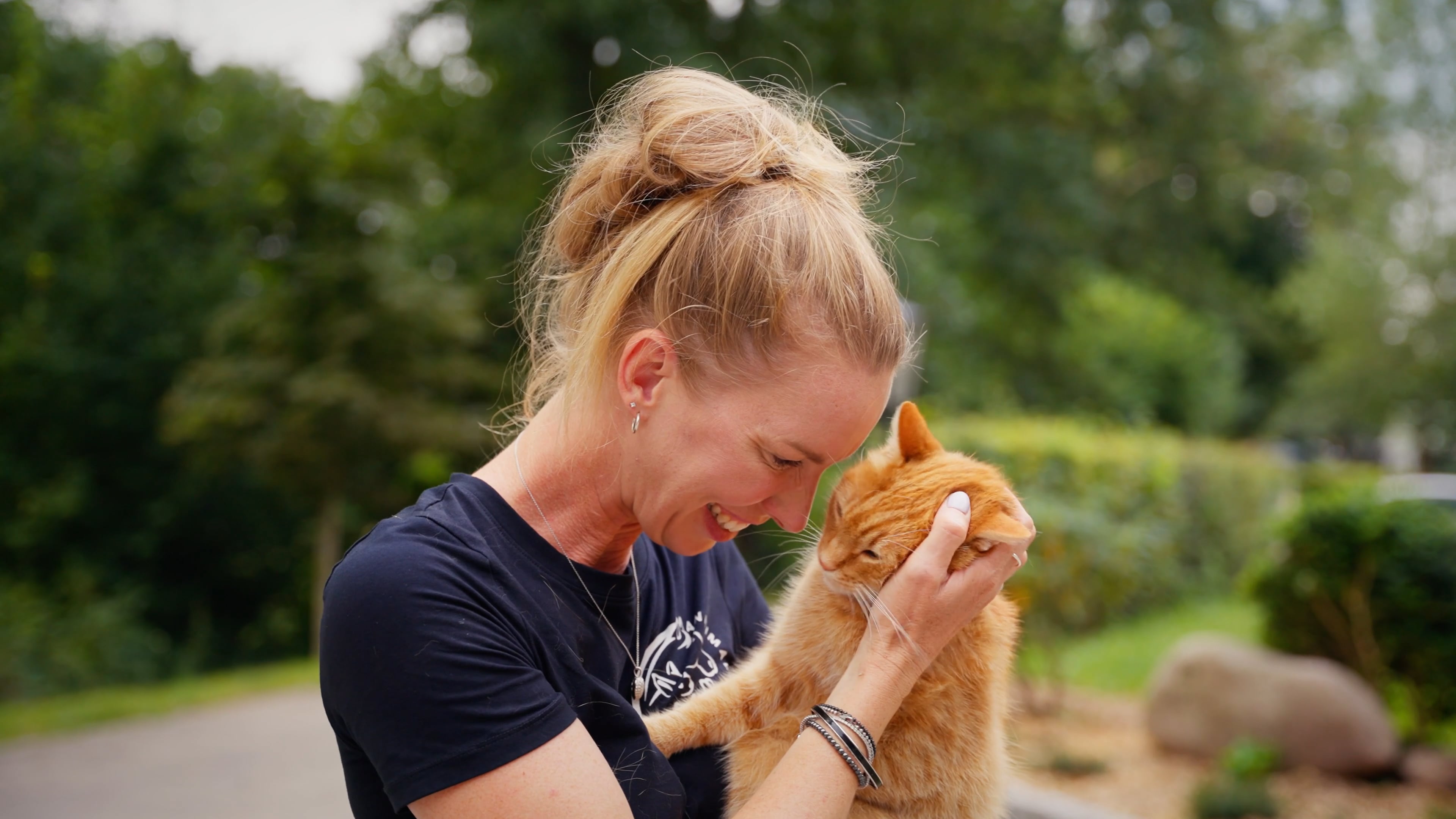Biotin in horses: Why it is so important for healthy hooves, skin and hair
If you're concerned with your horse's health and care, you'll sooner or later come across the topic of biotin. Biotin can play a crucial role, especially when it comes to problems with brittle hooves, poor hoof growth, or a dull coat.
But what exactly is biotin? Why is it so important for horses? And how can you ensure your horse is getting enough of this vitamin?
In this article, you will find all the important information about the importance of biotin for horses, the correct dosage, its function in the body, and supplemental feed that can help your horse stay healthy and perform well.
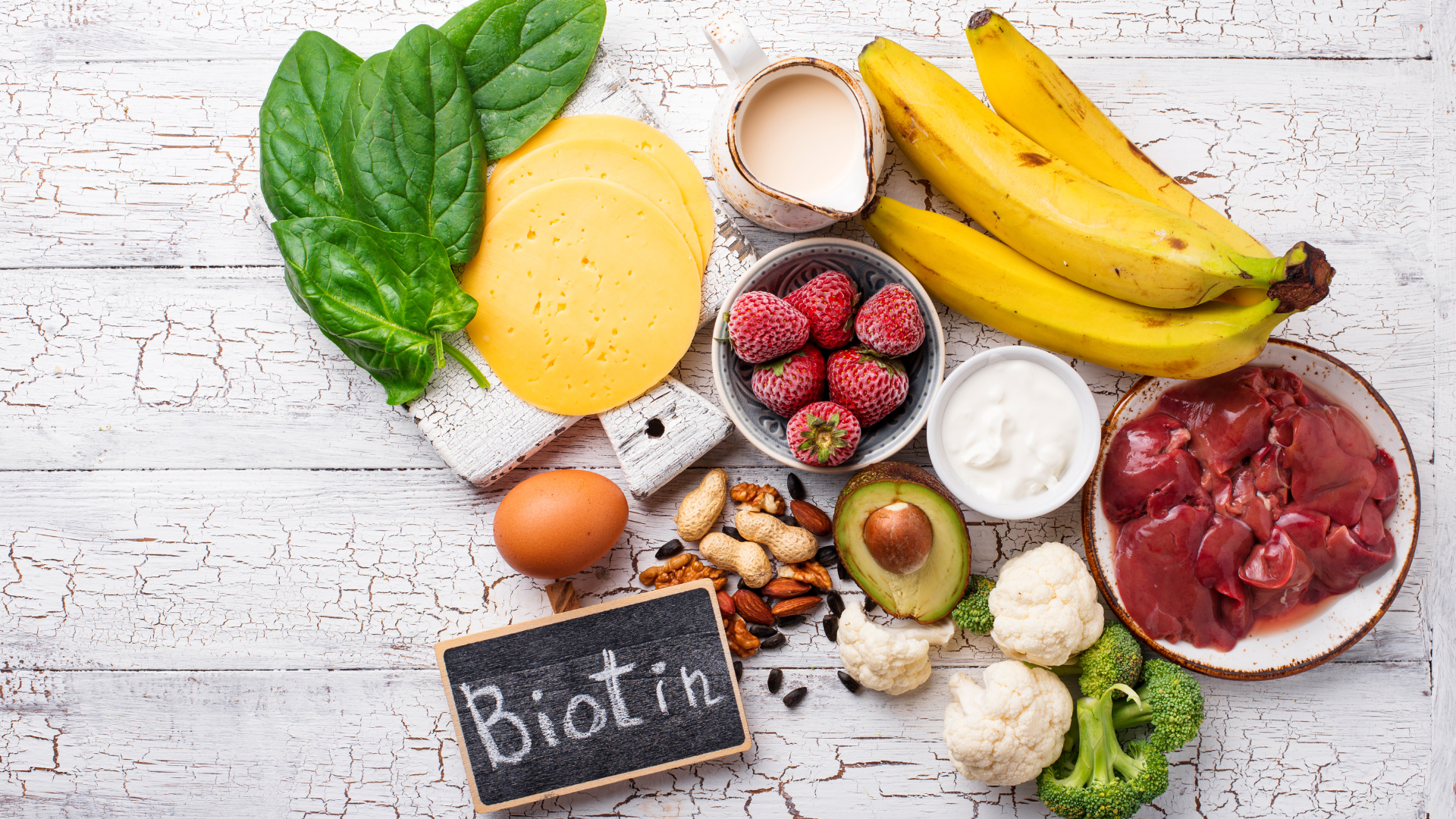
What is biotin?
Biotin, also known as vitamin B7 or vitamin H, belongs to the B vitamin group. These water-soluble vitamins are essential for the body's metabolism. Biotin is particularly important for keratin formation, which makes it so valuable for your horse's hoof horn, coat, and skin.
Without an adequate supply of biotin, horses can develop deficiencies. The consequences: brittle hooves, slow horn growth, dull hair, and a weakened skin barrier.
Why is biotin so important for horses?
Horse hooves consist primarily of horn, which in turn is based on a functioning keratin formation. Biotin is a key component of this. It contributes to the strength, elasticity, and quality of the hoof horn. Biotin supplementation via feed supplements can be particularly beneficial for horses with poor hooves, cracks, or brittle horn.
But it's not just the hooves that benefit: Hair and skin also need biotin for healthy growth. A shiny coat, healthy skin, and stable horn development are often signs that your horse is well supplied with this B vitamin.
How does a biotin deficiency develop in horses?
Biotin can usually be produced in the horse's intestine via biotin synthesis by microorganisms. However, various factors can disrupt this synthesis:
-
poor diet
-
too much grain
-
stress
-
Diseases
-
Antibiotics
-
unbalanced nutrient supply
Especially for sport horses, older animals, or horses with chronic hoof problems, the natural supply of biotin may not be sufficient. In these cases, support through high-quality supplementary feed is worthwhile.
The role of biotin in the horse's body
Biotin performs a variety of vital functions in the horse's body. It is particularly involved in fat, protein, and carbohydrate metabolism, thus ensuring that energy from food can be used effectively.
But biotin is especially known for its central role in the formation of keratin – the main component of hooves, skin, and hair. Without an adequate supply of biotin, your horse's body cannot build stable horn substance. This has a direct impact on the hooves: They grow more slowly, become brittle, or crack. At the same time, the coat often suffers as well – it loses its shine, becomes dull, and weak.
Biotin also supports cell renewal and contributes to the regeneration of skin and mucous membranes. In short, this vitamin is a true all-rounder that contributes significantly to your horse's appearance and overall health.
The correct dosage of biotin for horses
The recommended dosage of biotin for horses depends on body weight. Generally speaking, the following applies:
👉 0.2 mg biotin per kg body weight per day .
For a 500 kg horse, this means a daily dose of approximately 100 mg of biotin. Many commercially available feed supplements already contain adjusted amounts, often in powder form, which you can easily mix into the feed.
It's important to note that biotin must be fed over a longer period of time (at least 6–9 months) to achieve a visible improvement in hoof quality. Hoof growth is slow, so patience is required.
Which nutrients support biotin?
Biotin alone doesn't work in a vacuum. Other vitamins, trace elements, and amino acids also play a role in optimal horn formation and healthy horn growth:
1. zinc
Zinc is an essential trace element that, together with biotin, contributes to improving horn quality. It supports the immune system, skin renewal, and wound healing.
2. Methionine
This essential amino acid is a key building block for keratin formation. Together with biotin, it has a positive effect on the hooves, coat, and skin.
3. Vitamins A & E
These two vitamins promote cell regeneration and support the health of the skin and mucous membranes. They also strengthen the immune system and help with inflammation.
When should you feed biotin?
There are certain signs and situations in which additional biotin intake may be beneficial:
-
brittle or fragile hoof horn
-
poor hoof quality
-
slow hoof growth
-
Cracks or splits in the hooves
-
dull, lackluster coat
-
dry or flaky skin
-
after removing horseshoes
-
under high stress (e.g. in sports)
If you observe one or more of these symptoms in your horse, a high-quality biotin supplement may help.
How do I choose the right biotin product for my horse?
There are many products on the market, from powders to pellets to liquid supplements. Consider the following criteria when purchasing:
✅ high biotin content (at least 20 mg per daily dose)
✅ Contains trace elements such as zinc and copper
✅ Methionine as an amino acid supplement
✅ natural ingredients
✅ good reviews and experience from other horse owners
Powder products that allow you to individually dose are particularly practical. Also pay attention to the ratio to your horse's daily feeding and adjust the amount to his body weight.
Nutrition and feeding: the basis for healthy hooves
A balanced horse diet is the foundation for a healthy organism. Grain, roughage, minerals, and vitamins must be in the right proportions. This is the only way to ensure optimal metabolism and ensure nutrient supply.
Make sure your horse:
-
gets sufficient crude fiber (hay)
-
has access to fresh water
-
no nutrient imbalance occurs due to too much concentrated feed
-
is regularly dewormed
-
Supported by high-quality supplementary feed
Conclusion: Biotin – an underestimated helper for strong horse hooves
Your horse's health begins with the right supply of nutrients. Biotin, in particular, plays a key role in horn quality, hoof strength, and the coat and skin.
By feeding biotin-rich supplements, you can actively improve your animal's hoof health, horn growth, and well-being. Combined with zinc, methionine, and other B vitamins, you achieve holistic support.
So if you want to do something good for your horse in the long term, then think about the small but effective helpers like biotin in the next ration - because strong hooves not only carry the weight of 1 kg of body weight, but often also your love of equestrian sports.
Final tip: Have your horse's hooves regularly examined by an experienced farrier. Even the best vitamin supplement can't compensate for improper hoof care—but together, biotin and proper care ensure long-term horse hooves.
